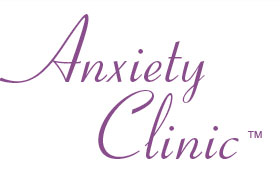Postnatal Depression Treatment
Learn how Postnatal Depression Treatment Can Help...
Postnatal depression treatment is a specialised area. However, as there are four main ways to treat postnatal depression it is important to ensure you are receiving the correct type. Getting the wrong type of postnatal depression treatment can result in anything from necessary delays to a complete failure to recover. On this page you'll learn about your options and will understand what type of postnatal depression treatment will work best for you. Read on or call us now to find out how we can quickly and safely help you overcome postnatal depression. Our number is 01782 855585.
Quick links:
Why anti-depressant medication is the WORST type of postnatal depression treatment!
Find out why FREE CBT can carry a very high price!
Quickly find learn the BEST and SAFEST method for postnatal depression treatment.
Postnatal Depression Treatment - Anti-depressants (Often SSRI's)

Perhaps the most commonly prescribed postnatal depression treatment is that of anti-depressant medication. These medications are often from a group called 'Selective Serotonin Reuptake Inhibitors' (SSRI's). Here is a list of medications known to have been prescribed for postnatal depression treatment:
- Celexa (Citalopram) SSRI
- Zoloft (Sertraline) SSRI
- Prozac (Fluoxetine) SSRI
- Paxil (Paroxetine) SSRI
Although medication is the most commonly prescribed method for postnatal depression treatment - it is also, by far the most potentially dangerous!
In our society we are often lulled into a false sense of security that all medications are so intensely tested they must be safe. Frankly - this is rubbish. For example, Prozac was prescribed on 4.2 MILLION prescriptions between 2010 and 2011 in the UK. Yet it has been known to increase suicide rates by THIRTEEN FOLD even before it was stamped 'safe' following completion of 'clinical trials' in 1987! Be careful what you take. If in doubt demand the information from your GP or pharmacist.
Another consideration besides 'suicide risk' involves all mothers who are breast feeding. The medical profession tells us that only small amounts of these drugs actually get passed on to babies though breast milk - is that what you want? Does your new baby deserve anti-depressants?
Medication is often prescribed because it is convenient for your GP, NOT because it is the best or safest method for recovery. It is very important you understand this because few GP's will explain there are better and safer ways to recover without you pressing them for specific information.
If you were to press your GP and ask if Cognitive Behavioural Therapy was SAFER and MORE EFFECTIVE than taking SSRI's for postnatal depression treatment - you'd find they would almost always agree. So, if your GP already knows that CBT is safer and more effective than SSRI's, why are they handing out so many prescriptions?
Think of it this way. A GP has on average eight minutes to listen to what you have to say, make a decision and do something about it. The truth is that your average GP doesn't have the time or resources to do anything beyond giving you a prescription. Unfortunately that's just the way the UK system works. However, it doesn't mean you have to put up with second best. Arm yourself with knowledge, be persistent and get the best postnatal depression treatment you can.
In the next section we'll discuss cognitive behavioural therapy . If rather than reading on you'd prefer to talk over your options with one of our Consultants, feel free to call us on 01782 855585 11am to 9pm seven days.
Postnatal Depression Treatment - NHS Cognitive Behavioural Therapy

The benefits of CBT over medication are numerous:
- Your body and mind remain clear of drugs.
- You don't pass on chemicals to your baby through breast milk.
- There are no side effects.
- There is no potential for drug reliance or addiction.
- There are no withdrawal effects.
- You know that when you feel better it's real and not because of drugs.
You can ask your GP for cognitive behavioural therapy (free) on the NHS. However, before you rush off to your GP there are a few truths you need to be aware of before making an informed decision.
The first hurdle you'll almost certainly be faced with is a waiting list. NHS CBT is notorious for having long waiting times. The reason is simple - lots of people want free CBT (for many different things) and the places are very limited. Don't be surprised if your GP says that you'll have to wait between two and six months for your NHS CBT to start. Unfortunately that's just the way it is for free CBT. By comparison we can have your CBT up and running generally within two or three days of your first contact. So if you want fast CBT we can arrange that for you no matter where in the UK you live.
If you are willing to stand in line and wait for free CBT from the NHS, then next issue to consider is the structure and quality of that CBT and whether or not it suits YOUR requirements. The truth is that CBT varies from provider to provider just as one restaurant may be better than another. One thing our clients raise (many of whom have experienced NHS CBT for themselves) is that the NHS seem to be obsessed with bureaucracy, paperwork and ticking boxes. The obvious problem here is that if the NHS CBT system is already laid out on paper - surely they have to make your problem fit with their system rather than the other way around.
Surely that would be like a cobbler making you a pair of shoes without measuring your feet or asking what you needed the shoes for... and then trying to force your feet into the shoes and changing your lifestyle to fit with what he'd already made! Frankly we don't see this as being the best way of applying CBT and nor do many of our clients.
If you absolutely insist on having free CBT then this is what you'll almost certainly have to make do with. However, going private has never been easier. It's faster, more flexible, more convenient and you'll be surprised at how affordable it is no matter what your situation. In the next section we'll discuss your best option for postnatal depression treatment.
Postnatal Depression Treatment - Anxiety Clinic Specialised CBT

We are here to make your recovery as fast, comfortable and efficient as we possibly can. With this in mind, we don't require a referral from your GP or health worker. You can simply pick up the phone and call us yourself - it's as simple as that.
We think there's little worse than when you need help, how many receptionists seem to do everything in their power to keep you away from the person you need to speak to. With this in mind we have an open door policy. This means that when you call you'll either speak directly with one of our specialised Consultants, or you will be called back by a Consultant that very same day.
All initial advice is free and is given without obligation. However, if you choose to work with us (which we hope you do) we can generally arrange to start your postnatal depression treatment within two or three days.
In addition to starting your postnatal depression treatment without delay we also deliver our CBT specifically to fit your exact needs. We don't work with rigid structures like the NHS - rather we LISTEN to what you tell us and then select only the tools and techniques we believe you need for a comfortable and fast recovery. We simply don't do fluff, padding or box-ticking bureaucracy - everything we do is to HELP YOU to feel better.
You're probably expecting this high level of service and expertise to be expensive, yet it is affordable for the vast majority of people. If you can't get to our Clinic in Stoke on Trent, your appointed Consultant can work with you online via webcam or telephone for just £69.00 per one-hour session. There are no extras, hidden costs or VAT and you simply pay as you go for the sessions you need.
If you live in or near to Stoke on Trent we would recommend working with us face to face. Our face to face Consultations are longer at 90-minutes in duration and cost £95.00 (which is reasonably reflective of the additional time you receive). Both initial online and face to face Consultations are zero risk and if for any reason you decide you don't want to continue working with us - neither will cost you a single penny. It's a no-brainer really isn't it?
For more information on our Consultations and zero risk guarantee choose from the following:
I live in or near to Stoke on Trent and I'm interested in more information on Face to Face Consultations
I don't live near to Stoke on Trent so Online Consultations would be better for me
Postnatal Depression Treatment - Combined Medication & CBT

In a small minority of very severe postnatal depression cases medication can be of benefit. However, in truth these cases are reasonably uncommon and medication is often prescribed when it is not actually required.
With this in mind if you are already taking medication as part of your postnatal depression treatment (either through your own request or advice from your GP) - we can still work with you. Although medication can sometimes improve the way you feel, this is actually lulling you into a false sense of security. The underlying problem(s) that were making you feel bad, emotional or inadequate etc are still running in the background and no amount of medication will change that. Medication merely sweeps these things under the carpet - it doesn't fix them! This is precisely why you need high quality, tailor made CBT as well.
Our CBT techniques will fix the underlying internal problems which are causing your self-confidence issues, concerns and emotional pain. Thus when you come off your medication you will 'remain' feeling better as the underlying problems have been addressed. If you insist on hoping medication will be a solution on its own (because you may be feeling a little better whilst you take it), then you need to be prepared to take it long term. If your underlying problems (masked by the medication) remain in the background, the moment you stop taking the medication you'll go back to feeling awful. Unfortunately that's just the way it is. Have you ever wondered why so many people remain on anti-depressants indefinitely? Now you know!
So just to sum up, if you genuinely need medication or if you're already taking it - that's ok. However, medication alone is very unlikely to be enough for long term recovery from postnatal depression. You still need some high quality CBT to fix the underlying internal problems in order to fully recover. It's entirely up to you what you chose to do but at least now you're equipped to make a better decision and understand the potential consequences of taking the 'medication only' path.
Postnatal Depression Treatment - Burying Your Head In The Sand...

Struggling to focus, concentrate and make decisions is symptomatic for many postnatal depression sufferers. Many will surf the internet searching for a silver bullet or magic pill to make things right - but in reality neither of these things are credible solutions.
The other common option is to bury your head in the sand and hope the postnatal depression will somehow go away on its own and tomorrow will be better. Again, this isn't a credible option because postnatal depression is an ongoing cycle which can last for over a year without the correct treatment.
Simply burying your head in the sand and hoping for the best is actually inviting the worst. People who take no action (or rely purely on medication) are the ones who suffer with postnatal depression long term. It's as simple as that.
The questions you need to ask are:
"Do I want to suffer like this long term?"
"Do my baby, partner, family and friends deserve me to be this way long term?"
"Am I going to bury my head in the sand or am I going to do something about it now?"
Whatever you choose to do, you'll be the one responsible for reaping the rewards or creating the consequences. You'll find your options in the next section.
Your Postnatal Depression Treatment Options...

Your first option is to bury your head in the sand and hope the postnatal depression goes away on its own. Unfortunately, because of the way depression works - it is very unlikely to go away without the correct treatment.
Option two is to accept medication from your GP and hope that alone will fix your postnatal depression. As we've already discussed, medication doesn't fix the cause of postnatal depression - it merely masks the symptoms lulling you into a false sense of security as you're somehow feeling better. If you want to recover from postnatal depression you have to address the underlying cause. Sweeping it under the carpet with medication alone isn't a viable long term solution.
Option three is to get some free NHS CBT. According to many of our previous clients this certainly doesn't seem to be the best CBT option. There are long queues, too much box ticking, too much rigidity and your problem has to fit their system... which frankly isn't a good CBT approach to use. However, if you simply don't have the money to go private or don't value yourself enough to pay for the best care - free CBT is certainly better than medication alone.
Option four is to work with us. We can make a very fast start (2-3 days typically from your first contact), our specialised CBT is proven to work, we put you and your care FIRST, our fees are very reasonable for the expertise we offer and you can try us out with zero risk. If during your initial session you decide that for any reason you don't want to continue to work with us, we'll part company on good terms and you wont owe us a single penny. Rationality suggests that by contacting us you have nothing to lose other than your postnatal depression!
Further information on Face to Face Consultations (Stoke on Trent Clinic)
Further information on Online Consultations (Nationwide UK)







